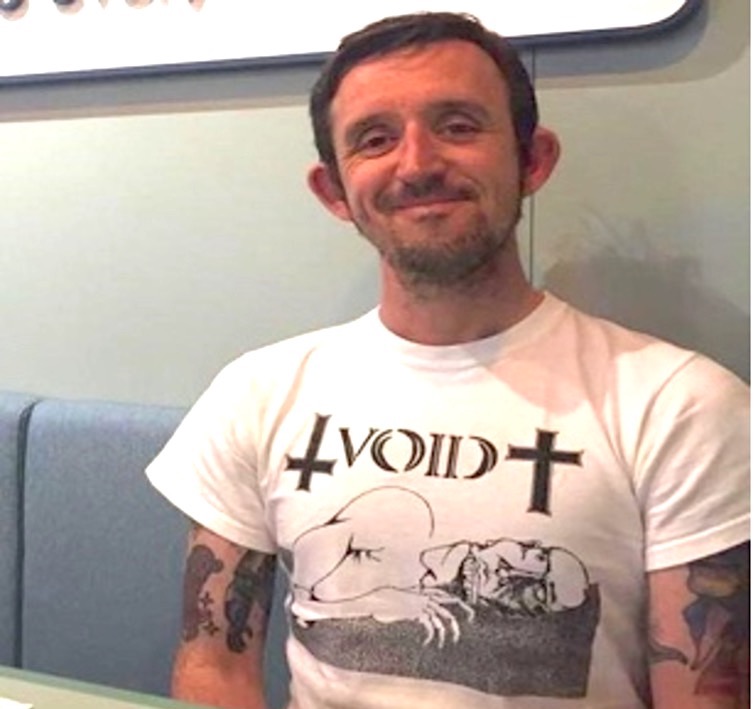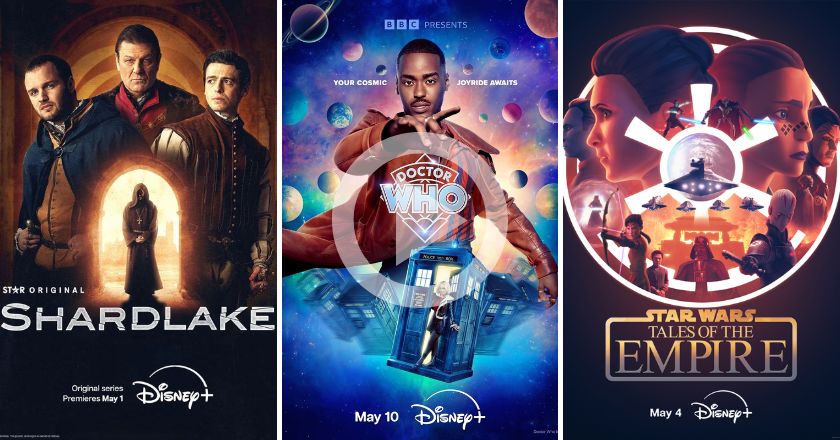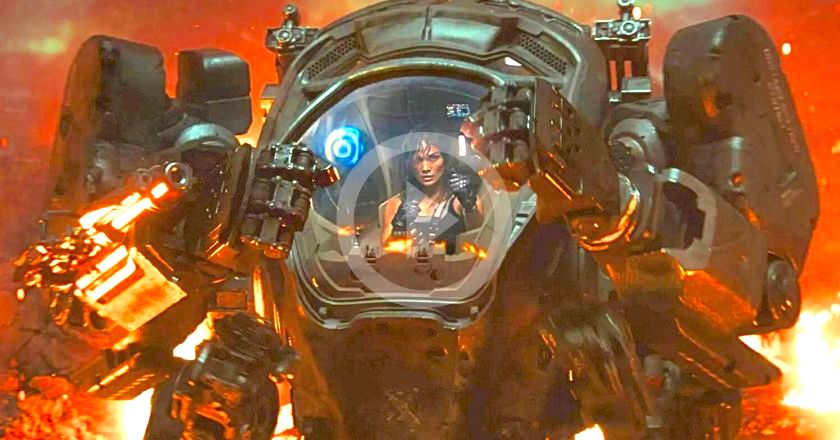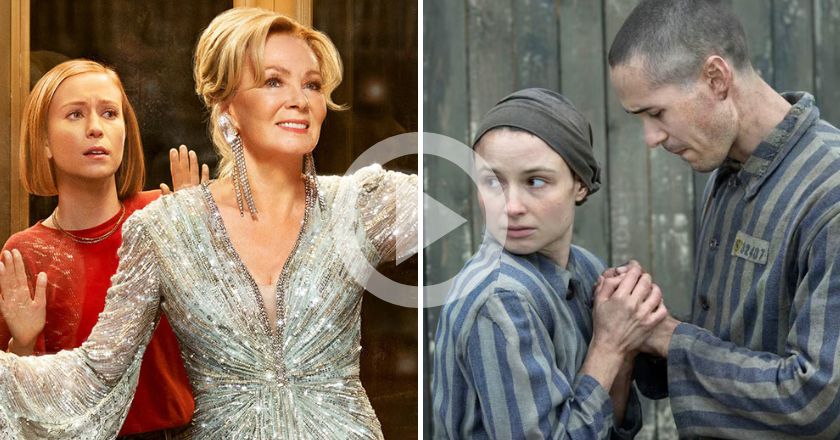
[Please note: Mild spoilers ahead for ‘Picard’ and spoilers for ‘Star Trek: Nemesis’.]
Star Trek: Picard is a 10-part series created by CBS All Access and is streaming on Amazon Prime Video in most countries outside of the USA, including Australia. The series sees Patrick Stewart returning to the Star Trek universe and to the iconic role of Jean-Luc Picard – the role that made him a household name.
In the year 2399, Admiral Jean-Luc Picard (Patrick Stewart) is retired from the United Federation Of Planets (Starfleet) and has taken charge at his family vineyard, Château Picard.
In his final mission for Starfleet, Picard was due to oversee the mass evacuation of Romulus, which was under threat of destruction from a nearby Supernova. At the same time, a violent uprising of synthetic lifeforms on Mars resulted in the banning of all synthetic life and research, and the sidelining of the Starfleet rescue armada. Picard’s alternate rescue plan was rejected by Starfleet and his acrimonious resignation was the result.
Many years into retirement, Picard is contacted by a young woman named Dahj (Isa Briones), who has been attacked by agents from the Romulan secret service, the Tal Shiar. Not knowing why she was targeted, Dahj turns to Picard for protection and help in finding her twin sister Soji (also played by Isa Briones). This sets the series in motion as Picard must come out of retirement, put together a crew and head out on a mission that involves a captured Borg Cube, a shadowy Romulan black ops unit known as the Zhat Vash, and in the grand tradition of The Next Generation, some philosophical pondering on human nature and what it means to be alive.

It has been eighteen years since Jean-Luc Picard’s swansong in Star Trek: Nemesis, and twenty-six years since The Next Generation (TNG) concluded. Picard picks up the mantle of the beloved character and like every Star Trek series before it, strives for something new.
The crew Picard puts together is comprised of good friends and new acquaintances. Michelle Hurd is excellent as Raffi, an old friend from Starfleet, battling personal demons and yet ably up to the task of supporting Picard in a role that is the ship’s Number One in all but name. The reliably excellent Alison Pill is synthetic researcher Dr Agnes Jurati and Santiago Cabrera is a great addition as both Captain Rios and his holographic crew.
Elnor (played by Australian actor Evan Evagora) is a nice character with a marvellous backstory”“ a master swordsman raised by Romulan warrior nuns, the Qowat Milat. If there is a slight downside, it’s that in appearance he looks a bit too much like Legolas from Lord Of The Rings – a comparison which his sword fighting prowess does little to dissuade you of.

The series benefits from this new, less formal approach, with a tight-knit crew and downsized starship; we’ve previously only had Jean-Luc Picard seated in the captain’s chair of the Enterprise, in command of hundreds of souls. Despite this, it is somewhat surprising that Picard is more low-key than expected, and it feels modestly budgeted at times. That’s not to imply that Picard is cheap – the effects and tech are very solid ““ but the sets are small and unimposing (Borg Cube excepted). Still, the same could be said of the story itself. While there’s planet hopping aplenty and starships facing off over alien lands, the nuts and bolts of Picard are far more intimate and personal than anything involving these characters has ever been. So on further consideration, it makes sense for this to be reflected across all aspects of the series.
In some ways, this is a different Picard to the one we knew, in terms of both series presentation and character. Television has moved on since the heyday of TNG and here we see Picard dealing with one overarching storyline from start-to-finish, as opposed to TNG‘s episodic format.
Picard himself is different too, not in terms of his character, but in terms of his place in the world. His authoritarian streak is still present, as is the confidence, humanity and moral centre required to make big decisions. It’s just that nobody wants him to make those decisions anymore. In retirement, Picard must get used to a life where he no longer has any clout and where his judgement is called into question. He is searching for his place in the world after being effectively removed from it.
In the first episode, Remembrance, Picard orders his signature Earl Grey tea from the replicator, but in a fun twist, requests it decaffeinated. It’s a nice metaphor for Picard himself. Having hidden away since his departure from Starfleet, he feels like he’s been wasting his life. This is Jean-Luc Picard, decaffeinated, robbed of his vigour by age and redundancy.

This is not to imply the character is not Picard. Decaf Picard is simply how we meet him again. The series reveals his inherent sense of right and wrong is still very much present and correct, proving beyond any doubt that this is still the the same man we know and love. A man whose moral compass can never be demagnetised.
Picard is haunted by his love for Data (Brent Spiner), who sacrificed himself at the end of Star Trek: Nemesis, and his sorrow is still very much present. The series has made the decision that Data’s death in Nemesis was final and provides a postscript to Nemesis that effectively neutralises the get out clause at that film’s end. This revision of Nemesis is definitely most welcome as the movie never felt like the goodbye the TNG crew deserved. Nevertheless, without going into spoiler territory, there are some super interesting parallels to Nemesis throughout the series that almost make me wonder if it was a conscious effort on the writers’ behalf, to make amends for it.
Much has been made about how Picard is darker and less utopian than previous iterations, but despite the concessions to a more contemporary and realistic tone, the complaints about the darker leanings are largely superficial. Yes, Picard is a different Star Trek than we may be used to. But this is modern Star Trek, and in many ways, it has to be. The world has changed since Jean-Luc Picard last graced our screens and this new chapter must reflect that. Some fans may not agree, as is their right, but let’s remember almost every post-TOS series has been met with fan grumbling. It’s just unfortunate that Picard, and Discovery for that matter, were the ones to come along in the internet age, and thus the voices of dissent are amplified louder than ever before.

There’s swearing in Picard and there is violence. This will not be to everybody’s tastes, but showrunner Michael Chabon has hosted some very interesting Q&As on his Instagram account in which he addressed fan concerns over the series’ more aggressive nature. It was decided the only way to convey the gravity and the intensity of events within a short 10-episode series, was to go darker. Let’s also be reminded that Picard was letting French profanities fly left, right and centre in the early series of TNG. Dropping a ‘merde’-bomb on the bridge of the Enterprise was a sneaky way round the pre-watershed censor and made you feel like you were in on a secret.
Chabon’s history as a Star Trek fan is well known and it’s hard to imagine a better person to be in charge. The dialogue hints at the smartass prose prevalent in all of his wonderful novels, while the parallels drawn to current events, as the less-than-perfect Federation retreats from a humanitarian disaster, should not be lost on those looking for meaning.
Alex Kurtzman’s involvement as a producer is curious considering his role as co-writer on J.J. Abrams’ rebooted movies. The reboot movies and Picard could not be more opposite. The former blundered through the Star Trek universe with an offensive disrespect, creating the alternate Kelvin Timeline by way of explanation. Picard meanwhile, is set in the Prime Universe and embraces everything to do with the classics that so many hold dear. As Picard forges ahead with something new, it is always mindful of the past, and it becomes immediately clear that this is a fan’s show.

They have aimed high with the continuity and the series references many classic episodes and facets of Star Trek lore. This is most visible in the appearance of the recurring characters. There are the popular fan favourites like Data (Brent Spiner), Troi (Marina Sirtis), and Seven of Nine (Jeri Ryan), and it is truly joyful to see Jonathan Frakes back on screen as Will Riker.
There are also some serious Star Trek deep cuts with the return of Hugh (and original actor Jonathan Del Arco) and the slightly more obscure Icheb (Casey King). This also allows Picard to tie together Borg storylines that originated in both TNG and Voyager, as well as acknowledging Picard’s own assimilation, when he became Locutus Of Borg.
Picard even affords the reboots respect, including them in the backstory. The Romulan supernova seen in the series is the very same supernova that drives Nero (Eric Bana) to create the Kelvin Timeline in the 2009 movie.
What cannot be questioned is that Picard has a lot of heart and is still immersed in the kind of existential and moral dilemmas that characterised so much of TNG. The series strikes a clever balance between the old and new, so there should be enough for a new audience to enjoy without feeling like they are out of their depth. For the fans, the rest is steeped in Star Trek knowledge and attention to detail. Therefore Picard should be welcomed into the fold of classic Star Trek, because although this might be a different Jean-Luc Picard, he’s still a great one.
SCREEN REALM SCORE: ★★★★☆
‘Star Trek: Picard’ season 1 can be seen on Amazon Prime.








